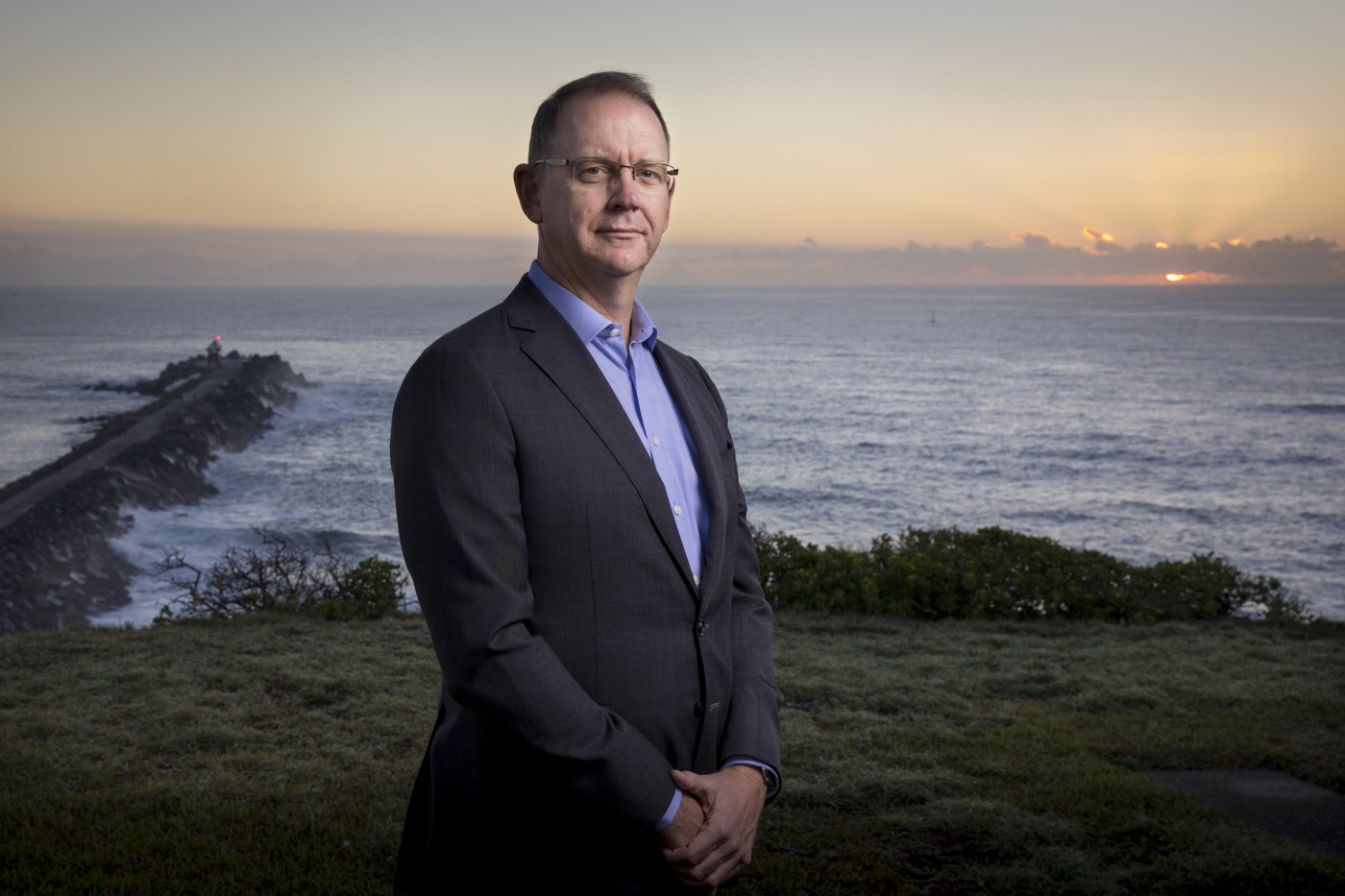
Optimism is a powerful thing. Economists have long recognised that market or consumer confidence materially affects future outcomes.
Since joining Port of Newcastle as an ‘outsider’ 12 months ago, I have never for a moment doubted the future prospects of the Hunter.
Yet, I sense not everyone shares my optimism.
Clearly there is ‘something’ going on – a construction boom, new infrastructure, new investment.
However, there seems an underlying fragility to the region’s outlook; a reluctance to believe that the good times can or will continue.
The optimism is somehow weighed down by concerns about the future, particularly the exposure of big industries to uncontrollable market change.
Similarly, retailers seem either highly optimistic about Newcastle’s revitalisation or struggling to survive in the face of it.
Our region’s economy is changing and this trend will continue.
Managing suchmajor economic transition presents a big challenge; but the Hunter has some success in this area. The closure of BHP’s local steelmaking operations 20 years ago, while traumatic, triggered an economic and social awakening that is still playing out today. When facing new challenges, we should remember and draw on this past success.
Economic and social resilience in the face of strongmarket forces is not about denyingthey exist, rather learning to adapt. A concept that continues to emerge in the discussion around economic diversification is the idea of Newcastle as a “second city” – the smaller cousin to a nearby capital.
These centres are targeted by governments around the world as places ripe for investment.
However, such a self-descriptor can be problematic. I travel regularly in Asia, the destination for almost all of the region’s trade. The key insight I can share is that the port is certainly not seen as a “regional” or “second city” port. The Port of Newcastle is a global player in trade. Period.
When visiting Asian importers and industries, the discussion is about the port’s future plans, trade portfolio and projects in the pipeline.
Traders and shippers around the world do not think of Newcastle in terms of its proximity to Sydney. It is the Port of Newcastle, a major global trade gateway that plans to be bigger and more diverse. We must understand our current strengths if we are to have confidence for the future.We need to back ourselves, back businesses, back the local economy to thrive.
It is easier to expand, transition, experiment and explore new possibilities, to take calculated risk, when the times are good.
Delaying transition until confidence is down, when businesses are defensive and private investors are avoiding taking a risk, is counterproductive.
Port of Newcastle’s plans are founded on an optimism for the future of this region and NSW. The port has enabled industries across the state, particularly the Hunter, to competitively trade with the world for more than two centuries.
The port and the region have been in lock step in the good times and the bad. I cannot see that changing.
In coming years, Port of Newcastle will be home to the only deepwater port in Australia able to handle ultra large vessels, regardless of whether they are carrying bulk commodities, such as coal, or containers.
Our region can be optimistic about this because the global trends are undeniable; Asia’s demand for our products will continue to grow, ships are getting bigger and there is no other port on the east coast capable of handling them.
Crowded, congested capital cities ask “what now?”, we can ask “what next?”. This discussion is critical. The region needs to align on a shared value proposition. We need to understand what the region currently offers and where the potential is for the future.
Considering the strength of sectors such as advanced manufacturing, professional services, tertiary education, health and in the start-up space, the Hunter has much to celebrate and tremendous cause for optimism.
For its potential to be achieved, businesses, community and governments at all levels need to work together with a focus on better policy and planning.
We need to encourage investment – whether that be public, private or a combination of the two – and have the confidence to stay on the course even if the journey is rough.
Craig Carmody is the CEO of Port of Newcastle
